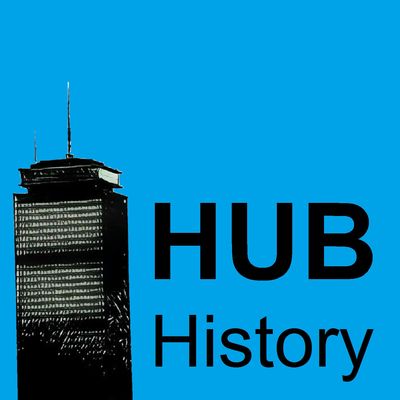Where two history buffs go far beyond the Freedom Trail to share our favorite stories from the history of Boston, the hub of the universe.
http://HUBhistory.com
Dr. Rebecca Crumpler, Forgotten No Longer (episode 200)
Dr. Rebecca Davis Lee Crumpler was the first Black woman to earn a medical degree in the US in 1864, and she spent most of her adult life in Charlestown, Beacon Hill, and the Readville section of Hyde Park. She devoted her career to pediatrics and obstetrics, published the first medical text by an African American author, and made a point of caring for the marginalized, even moving to Virginia to tend to formerly enslaved people at the end of the Civil War. The nation’s first Black female physician lay in an unmarked grave for 125 years, but there have been important developments in the story of Dr. Crumpler while we’ve been in quarantine this year.
Please check out the transcript and full show notes at: http://HUBhistory.com/200/
And support the show on Patreon.
Dr. Rebecca Crumpler- A history of the West Newton English and Classical School, including an entry for Dr. Crumpler
- Scrapbook of contemporaneous news coverage about the New England Female Medical College
- 1951 history of the New England Female Medical College
- The quote about studying too hard damaging a woman’s uterus is from this article on the history of women in medicine
- A 1912 map of Hyde Park, showing Sunnyside Ave (now Solaris Road) where the Crumplers resided, directly across the Mother Brook from their graves at Fairview Cemetery
- Dr. Crumpler reads a poem at the dedication of a statue of Charles Sumner in New Jersey in 1874.
- Victoria Gall’s research into the Crumplers’ residences in Boston
- Stories involving the Crumplers from the Boston Globe
- Feb 1891, Rebecca signs a letter regarding a sex scandal at 12th Baptist
- Aug 1891, Arthur bars the doors to 12th Baptist as part of a protest against the pastor involved in the scandal
- July 1894 description of Rebecca
- Feb 1896, Arthur joins the Board of Trustees at Calvary Baptist
- April 1898, Arthur is “Boston’s Oldest Pupil”
- The Oldest Pupil story as newspaper filler, as told by a racist newspaper, and as told in a Black owned newspaper
- Photos from the dedication of the Crumplers’ headstones
- Coverage of the ceremony from the Boston Globe and NBC News
- In episode 111, learn how Dr. Marie Zakrzewska inspired Boston’s first playgrounds.
- In episode 116, hear how Horace Mann reinvented public education
- Confused when we talk about the Mother Brook? Check out episode 91.
Remember restaurants? Not takeout, not patio seating, not eating under a tent in a reclaimed parking space, but real restaurants? I do… barely. If you’re having trouble remembering what restaurants were like, check out Dining Out in Boston: A Culinary History. Author James O’Connell analyzes restaurant menus dating back to the early 1800s to show how Boston restaurants helped to develop America’s tastes and expectations in restaurant dining.
Upcoming EventLongtime listeners know that I’m a big fan of John Adams, and I spend a lot of time in the online Adams papers. At noon on Thursday, September 10, University of Tennessee-Knoxville PhD candidate Yiyun Huang will be presenting on the topic “John Adams and China: Globalizing Early America.”
The talk draws on Yiyun’s dissertation, which is tentatively titled “‘Nothing but large potions of Tea could extinguish it’: Cultural Transfer and the Consumption of Chinese Tea in Early America.” The title is taken from a 1757 diary entry by John Adams, where he notes that only Chinese tea can sooth his chronic heartburn. He was just one of many Americans who relied on tea for its medical benefits prior to December 1770. But why did Adams and his contemporaries believe tea was beneficial? In a description of his doctoral work, Huang says,
I trace the cultural ties that bound Qing-dynasty China and British North America during the eighteenth-century. I argue that British colonists in North America consumed a great deal of Chinese tea before the American Revolution due to a robust global transfer of ideas, attitudes, and beliefs associated with this tea. It took multiple transoceanic networks of physicians, Jesuit missionaries, and merchants to transmit academic and vernacular knowledge of Chinese tea across the globe.
As with most Massachusetts Historical Society talks, this one is free, but advanced registration is required.
